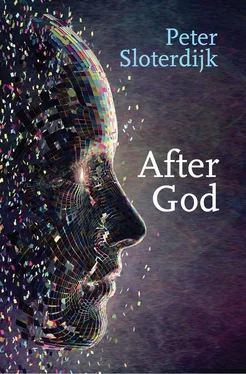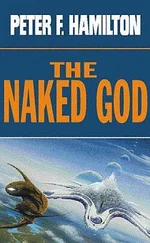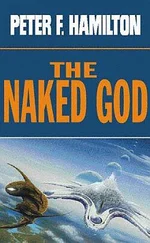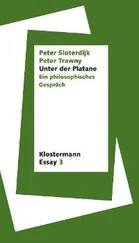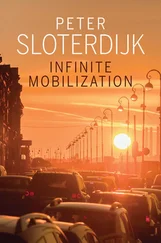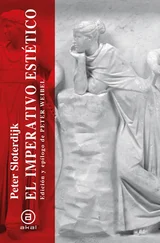Luther was also lucky when the romantic theologian Schleiermacher made religion into a matter of talent and disposition so as to make it accessible again to the educated among those who despised it. He was still lucky when Nietzsche, the preacher’s son, invented a figure named Zarathustra, who preached to his friends: “Remain true to the earth!” – and beware the teachers of ressentiment ! He was lucky, even if he did not earn it, when Albert Schweitzer explained why the western ethics of brotherly love need not hide from the eastern mysticism of the contemplative life. 28He had more luck than understanding when it turned out that, despite Luther’s late words against Judaism, he was not responsible for that pathetic former Catholic, Adolf Hitler. He was lucky when the evangelical church in Germany issued the Stuttgart Declaration of Guilt in October 1945, taking responsibility for their lack of courage and love in resisting the National Socialist catastrophe. Finally, he was lucky when Martin Luther King declared before an exalted crowd that he had a dream.
*
If the beginning of the Reformation was characterized by the move of gaining energy through diminution, entropy remained characteristic of its development. Irrevocably and with remarkable haste, religious entropy dismantled the overexertions of the forms of world denial and life denial of the axial age. It had taken thousands of years to establish these forms; their demolition took less than two hundred. Now a life that has been flattened out comes to affirm itself. Yet it does so without specifically making much ado about its self-affirmation – leaving aside the episode of inflated philosophy of life that was inspired by Nietzsche. Eccentric positionality has advanced a few steps further: a massive quest for horizontal attention takes the place of burdensome vertical scrutiny under the eyes of God. In this situation Protestantism cannot expect its historical luck to continue. It would get off well if, five hundred years from now, one could say that it has shown itself to be an intelligent third power in the confessional war of our times, in the resistance – disguised as a campaign of the unsatisfied against the “elites” – that mass culture offers to high culture.
1 Dante placed hypocrites in the sixth circle of the penultimate levels of hell, where they circle about in gilded robes of lead (Inferno, Canto 23). A later Enlightenment will serenely note: “Hypocrisy is the mother of civilizations” (Régis Debray, Dégagements, Paris: Gallimard, 2010, p. 283). 2 Helmuth Plessner, Die Stufen des Organischen und der Mensch: Einleitung in die philosophische Anthropologie (Berlin: Walter de Gruyter, 1928). 3 [TN: This clause is in English in the original.] 4 See p. 11 here. 5 Bonds: Schuld, Schulden und andere Verbindlichkeiten, edited by Thomas Macho with the collaboration of Valeska Neumann (Munich: Wilhelm Fink, 2014). 6 Starting in 1860, the ethnologist Adolf Bastian developed an empirical universalism on the basis of so-called “elementary thoughts.” See Adolf Bastian, Der Mensch in der Geschichte, 3 volumes (Leipzig: O. Wigand, 1860). 7 [TN: “Terms of trade” is in English in the original.] 8 See Heiner Mühlmann, Die Natur des Christentums, with a foreword by Bazon Brock (Paderborn: Wilhelm Fink, 2017). 9 Karl Jaspers, The Origin and Goal of History (Abingdon: Routledge, 2010).10 See Jan Assmann, Religio Duplex: How the Enlightenment Reinvented Egyptian Religion, translated by Robert Savage (Cambridge: Polity, 2014).11 Karl Jaspers, The Question of German Guilt, translated by E. B. Ashton (New York: Fordham University Press, 2000), p. 66.12 Saint Augustine, Confessions, 3.6.11.13 On the complex of axial-age world pictures shedding themselves of archaic cults, see Robert N. Bellah, Religion in Human Evolution: From the Paleolithic to the Axial Age (Cambridge, MA: Harvard University Press, 2011).14 Søren Kierkegaard, Either/Or: Part II, edited and translated by Howard V. Hong and Edna H. Hong (Princeton, NJ: Princeton University Press, 1987), p. 349.15 See Francesco Petrarca, Secretum meum.16 Karlheinz Stierle, Francesco Petrarca: Ein Intellektueller im Europa des 14. Jahrhunderts (Munich: Hanser, 2003).17 [TN: “Age of anxiety” is in English in the original.]18 Lotario de Segni, Vom Elend des menschlichen Daseins: Aus dem Lateinischen übersetzt und eingeleitet von Carl-Friedrich Geyer (Hildeshim: Georg Olms, 1990). The introduction contains an overview of the literature of the Middle Ages on conditio humana that extends up to twentieth-century anthropology.19 Ibid., p. 11.20 Friedrich Nietzsche, On the Genealogy of Morality, revised student edition, edited by Keith Ansell-Pearson, translated by Carol Diethe (Cambridge: Cambridge University Press, 2007): “Third Essay,” §11, p. 85.21 Hugo Ball, Byzantinisches Christentum: Drei Heiligen-Leben (Göttingen: Wallstein, 2011 [1923]).22 Ibid., p. 7.23 See Peter Sloterdijk, You Must Change Your Life, translated by Wieland Hoban (Cambridge: Polity, 2013), pp. 271–2. Also Martin Riesebrodt, Cultus und Heilsversprechen. Eine Theorie der Religionen (Munich: Beck, 2007), chapter 6 (“Radikale Heilssuche: Praktiken asketischer Virtuosen”), here pp. 175–6.24 Thomas Kaufmann, Geschichte der Reformation (Frankfurt am Main: Verlag der Weltreligionen, 2009), p. 718.25 With this et cetera Luther brings to light a scholarly brutality that illuminates his later demeanor. The young scholar treats the first word of Christ testified to in the New Testament – which is a quotation from John the Baptist – as a truism that one can cite in an argument just for the purpose of being right. The “etc.” of the first thesis exposes the Reformation as a giant staging of “eccentric positionality” in the theological mode: penance as an attitude of being right.26 [TN: Translation from Martin Luther, 1483–1546, edited by Kurt Aland (St. Louis: Concordia Publishing House, 1967).]27 [TN: Ibid., translation modified.]28 Albert Schweitzer, Indian Thought and Its Development, translated by Lilian M. Rigby Russell (New York: Holt, 1936 [1935]).
Конец ознакомительного фрагмента.
Текст предоставлен ООО «ЛитРес».
Прочитайте эту книгу целиком, на ЛитРес.
Безопасно оплатить книгу можно банковской картой Visa, MasterCard, Maestro, со счета мобильного телефона, с платежного терминала, в салоне МТС или Связной, через PayPal, WebMoney, Яндекс.Деньги, QIWI Кошелек, бонусными картами или другим удобным Вам способом.
